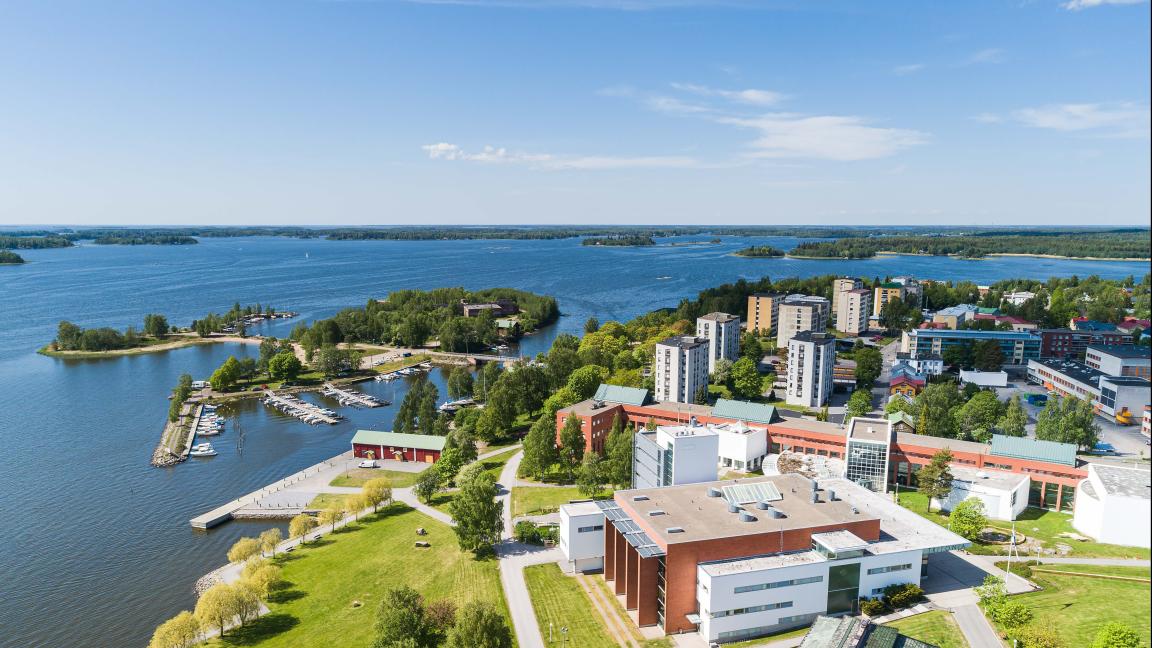University of Vaasa receives more than 1.5 million euros in research funding – shows the university's significance for society and industry
"In the new strategy of the University of Vaasa, the focus is on sustainable business, energy, and society. The funding received is evidence of the impact of our research. The university’s significant RDI investments are starting to pay off, and we are on a strong path of growth," says Minna Martikainen, the rector of the University of Vaasa.
On Tuesday 12 December, the Parliament distributed what is referred to as "Christmas gift funding". The VEBIC research platform at the University of Vaasa received a 450,000-euro allocation for the development of a hydrogen research environment. The funds will be dedicated to implementing a secure storage and fuel system, particularly for hydrogen engines.
VEBIC collaborates closely especially with the energy cluster in the Vaasa region, so the upcoming hydrogen research environment will also benefit businesses in the Ostrobothnia region and directly strengthen the energy cluster. An internationally competitive knowledge and innovation ecosystem also attracts expertise and supports the development of the industry in the region.
"Warm thanks to the region’s Members of Parliament, led by Joakim Strand. We accept the funding with great gratitude and consider it a significant support for advancing the university's crucial RDI activities," says Martikainen.
Xiaoshu Lu, professor of energy technology at the University of Vaasa, has received 310,451 euros in funding from the Research Council of Finland (Suomen Akatemia) for research aimed at developing a new method to optimise the indoor environment quality of school buildings while minimising energy consumption and greenhouse gas emissions. Researchers will use cutting-edge technologies such as artificial intelligence, machine learning, multi-objective optimisation, and high-performance computing techniques, as well as novel multi-agent based algorithms. The SustainSchool project consortium includes Aalto University, leading the project, and the University of Vaasa. The three-year project aims to collaborate internationally, leveraging the LUMI supercomputer.
In addition, Tanja Sihvonen, professor of communications studies at the University of Vaasa, has received 345,170 euros in research funding from the Research Council of Finland as part of the SYNTHETICA consortium led by the University of Tampere. In the three-year project, the complex and multifaceted ripple effects and limitations of AI-human interplay in the contexts of work, business, and society are examined.
A sustainable energy transition requires multidisciplinary research and RDI activities. The Nordic Energy Research consortium has granted 500,000 euros for the "Best4Grid" joint project led by Professor Miadreza Shafiekhah and Postdoctoral Researcher Shah Shakeel in the fields of marketing and technology. The project explores the use of vehicle battery storage for green transport and grid stability in the Nordics.
The University of Vaasa is also part of a consortium led by the AEIDL – European Association for Innovation in Local Development, implementing the European Union initiative Communities for Climate (C4C). The European Commission has provided funding for the initiative, which aims to support a series of organised local communities wishing to undertake actions against climate change through local community-led initiatives. Martta Ylilauri, researcher at the University of Vaasa, is one of five selected thematic expert leaders.
